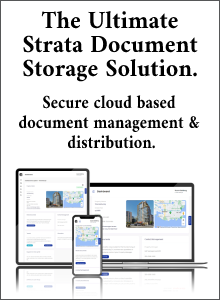
Annual General Meetings for Strata Corporations
Annual General Meetings for Strata Corporations
If you are a strata owner in beautiful British Columbia, you’re probably familiar with the importance of Annual General Meetings (AGMs) for strata corporations. AGMs are crucial for making decisions, electing council members, and ensuring that your strata community runs smoothly. In this comprehensive guide, we’ll walk you through the key aspects of AGMs, helping you navigate the process with confidence and clarity.
Annual General Meetings (AGMs) serve as pivotal junctures in the governance of strata corporations, providing a forum for all owners to convene and collectively shape the future of their shared community. At these annual gatherings, owners undertake a range of crucial responsibilities, including the approval of the annual budget, the endorsement of significant expenditures via special levies or contingency reserve fund withdrawals, the election of a strata council, and the contemplation of bylaw amendments or modifications to common property rules.
Furthermore, AGMs empower owners to guide the strata council’s actions through majority votes, ensuring that their voices are heard and their concerns addressed. In addition to Annual General Meetings, Special General Meetings stand ready to address specific, time-sensitive issues that may arise within the strata corporation, such as the need for a bylaw amendment that demands a ¾ vote approval by owners.
We explore the intricacies of Annual General Meetings for Strata Corporations, shedding light on their significance in shaping the trajectory of these shared living spaces and the potential recourse of Special General Meetings when urgency dictates.
A. Notice Provisions
First things first, let’s talk about notice provisions. The Strata Property Act outlines strict timelines for AGM notices. Notice by mail must be provided at least 20 days before the meeting. Here’s how it’s calculated: 14 days for actual notice, plus 4 days for mailing, and counting the day of mailing and the day of the meeting. Additionally, your strata managers need some time to prepare the notice package and additional information, so factor that in.
Remember, AGMs must be held within 13 months of the last AGM or within 2 months of the strata corporation’s fiscal year-end. Proper notice ensures that all owners are informed and can participate in the meeting.
B. Procedure
The order of business for AGMs is established in your strata corporation’s bylaws. Any resolutions being proposed should be clearly outlined in the meeting notice. Resolutions requiring a ¾ vote of owners must be included in the agenda. This prevents last-minute substantive changes that could disadvantage owners who cannot attend the meeting.
To make your voice heard and prevent a minority from making critical decisions, attend AGMs in person or send a proxy expressing your wishes. While the Strata Property Act allows for some reconsideration of approvals, the time frames are tight, making it challenging to challenge decisions after the fact.
C. Outline of a General Meeting
Each general meeting adheres to a predefined order of proceedings, as detailed in either the standard bylaws or the specific bylaws of your strata corporation. While occasional minor adjustments may occur in exceptional cases, we have provided a comprehensive overview of the standard procedure below, along with insights into individual elements.
Your strata corporation’s property manager will play a pivotal role in facilitating the meeting’s agenda. We encourage you to feel at ease approaching them with any questions or uncertainties that may arise during the proceedings. Their guidance is invaluable in ensuring a smooth and informed meeting experience.
i. Call to Order
The President of the strata corporation, in their capacity as the meeting’s chairperson, will formally convene the proceedings, ideally adhering to the scheduled commencement time. In cases where some owners arrive tardily and have not completed their sign-in and registration process, it may be necessary to delay the meeting’s commencement. The property manager will apprise you when it is suitable to officially begin the meeting.
Given the property manager’s pivotal role in documenting meeting minutes and providing procedural guidance, we kindly request that the meeting not commence until their presence is ensured. As the meeting’s chairperson, we have found it beneficial, at this juncture, to introduce all council members and your property manager to the owners in attendance.
ii. Calling the Roll
The property manager will advise that they have registered owners and proxies as they have arrived and have issued voting cards to those entitled to receive them. At this point, the property manager will often explain how to use the voting cards when voting on resolutions during the meeting.
iii. Confirmation of Quorum
The Strata Property Act lays out specific requirements for achieving quorum at a general meeting. For the majority of strata corporations, the quorum is typically set at one-third of the owners who are both present and eligible to cast votes. However, it’s important to note that owners who are in arrears with their strata fees, and against whom the strata corporation has either registered or is entitled to register a lien (usually following a formal demand for payment), may not be included in the quorum count. This, of course, depends on the specific bylaws of your strata corporation.
Should a quorum not be met at the scheduled start time of the meeting, the Strata Property Act mandates a waiting period of half an hour before adjourning the meeting to the same time and place one week later. Some strata corporations have adopted bylaws that specify a waiting period on the day of the meeting, after which a quorum is deemed to be met.
If your strata corporation lacks such a bylaw and has encountered challenges in achieving quorum at past general meetings, it is advisable to discuss this matter with your property manager. They can assist you in implementing a bylaw to address this issue.
Regarding meeting procedures, it is customary for the Chair to request the property manager to confirm the presence of a quorum before proceeding with the meeting.
iv. Electing a Chair for the Meeting, if necessary
If the President of the strata council is present, your bylaws typically designate them as the Chair of the meeting, obviating the need for a separate election. In the event that the President is absent or unwilling to assume the role of Chair, the Vice President typically steps in to fulfill this responsibility. However, if you prefer an independent individual or the property manager to preside over the meeting, it is essential to inform those in attendance and propose a motion to elect that person as the Chair. The election of an alternative Chair necessitates approval through a majority vote.
v. Confirmation of Notice
The chair or property manager confirms that notice requirements have been met.
vi. Approval of the Annual General Meeting Agenda
At this juncture, the Chair will inform those in attendance that the notice of the Annual General Meeting serves as the official agenda for the gathering. The Chair will then invite owners present to propose any additional agenda items they wish to discuss or clarify that owners may bring up new business matters during the designated “new business” or “any other business” sections, depending on the Chair’s preference.
However, it’s worth noting that in the case of a Special General Meeting, owners typically won’t have the opportunity to introduce new business items. Special General Meetings are convened for specific purposes, and the council is not obligated to entertain additional matters during these meetings.
vii. Reading and Disposing of any Unapproved Minutes
The strata corporation’s protocol dictates that the minutes of the most recent annual general meetings must receive approval at the subsequent annual general meeting. Typically, this entails the adoption and approval of the prior Annual General Meeting’s minutes during the next Annual General Meeting. However, if a Special General Meeting took place within the year, you would have already sanctioned the minutes of the preceding Annual General Meeting during the Special General Meeting. Consequently, at the present Annual General Meeting, you’ll be endorsing the minutes of the Special General Meeting. Your property manager will be there to offer guidance throughout this process.
It’s important to note that there’s no need to recite the previous minutes aloud during the meeting. The minutes would have been distributed to all owners in advance, affording them ample time for review. Additionally, it’s our standard practice to enclose copies of the most recent general meeting minutes with our welcome letters to new owners. This ensures that even if there have been title transfers since the last general meeting, the new owners will have access to the minutes.
Occasionally, owners may desire amendments to the minutes if they believe there are inaccuracies. In such instances, they must propose a motion to rectify any errors or omissions in the minutes. For this motion to proceed, it must be seconded, and the Chair must then call for majority approval to endorse the amendments. After the amendments have been approved (or if there were no proposed amendments), the Chair will request a motion to approve the previous minutes, either as amended or as distributed. Once the motion is moved and seconded, a majority vote will confirm the approval of the previous minutes.
viii. Deal with Unfinished Business
There will rarely be unfinished business arising from the previous minutes. If there is, this is the time to deal with those issues. An example of unfinished business is a motion made at a previous general meeting directing the strata council to bring something back to the next general meeting for discussion.
ix. Receive Reports of Council Activities and Decisions
At this juncture in the meeting, the President typically offers a concise overview of the council’s activities over the past year to those in attendance. Additionally, if your strata corporation has established committees, it is customary for each committee chair to deliver a brief report at this point. This moment provides an excellent opportunity to address any overarching concerns within the strata corporation and express gratitude to those who have contributed to its well-being throughout the year. It’s a particularly positive and impactful segment of the meeting, one that warrants thoughtful preparation.
Moreover, if there are significant resolutions slated for discussion later in the meeting, this segment serves as an advantageous platform to set the stage for those resolutions.
x. Ratify New Rules
The Strata Property Act permits strata councils to make or amend rules governing the use of common property during the year. Any such new rules or amendments must be ratified by the ownership at the next occurring Annual General Meeting. If there are rules to be ratified, they must be contained in the notice and a majority vote resolution must be made and passed in order for them to remain in effect as rules of the strata corporation.
xi. Report on Insurance Coverage
The strata corporation’s insurance policy particulars are to be furnished to owners annually, with a comprehensive summary, including coverage values and deductibles, conveniently enclosed within the Annual General Meeting package. While it isn’t imperative to conduct an in-depth examination of the insurance, it is essential to underscore its inclusion in the package and offer a brief overview of the coverage. Rest assured, your property manager will be handling this aspect on your behalf.
xii. Approving the Accounts
This section is where the property manager, or the Treasurer, will review the extensive notes regarding the previous year’s operating statement that we will have provided as part of the Notice of Annual General Meeting package. These notes will outline how the strata corporation did over the previous year in respect to the various budget categories. Once this section has been reviewed, the Chair will ask if there are any questions from the floor and such questions will be answered by the property manager or the council, depending on your preferences.
Once any questions have been answered, the Chair will request a motion to approve the operating statement for the strata corporation for the current fiscal year.
xiii. Approving the Proposed Budget at the Annual General Meeting
When reviewing the proposed budget, either the property manager or the Treasurer will provide a concise overview of the detailed budget notes circulated for the upcoming fiscal year. Notable changes from the previous year’s budget will be emphasized and discussed.
Owners may occasionally raise concerns about specific budget items and have the opportunity to propose amendments during the meeting. To make an amendment, owners must have a mover and a seconder for the proposed change, and it must pass by a majority vote among owners present, either in person or by proxy.
If any amendments are approved, the budget must then be voted on “as amended,” requiring a majority vote in favor for the amended budget to be accepted. If multiple amendments arise, procedural complexities may emerge, but your property manager will assist in navigating these issues.
In some years, resolutions regarding expenditures from the contingency reserve fund or through special levies may arise. These special expenditure resolutions should be included within the proposed budget section to ensure they are voted on BEFORE final budget approval. As these resolutions can impact the overall budget, it’s prudent to delay approval of the proposed budget until the outcome of these special resolutions is determined.
If one or more of these resolutions are not passed, adjustments to the proposed budget will be necessary.
xiv. Deal with New Business
This is the section under which any bylaw amendments or non-financial special resolutions would be tabled and discussed. Any change to the bylaws requires a ¾ vote resolution in favour to pass. This is also the section for other new business that may have been identified when the owners were approving the agenda or that owners may have notified the strata corporation of, in writing, in advance of the meeting.
The Chair should ensure that all formal business identified in the Notice of Annual General Meeting is dealt with prior to having discussion on “new” items that may be identified by owners, in writing, before the meeting or at the start of the meeting when considering approval of the agenda.
xv. Elect a council
Strata council members need to be elected annually according to the Standard Bylaws. However, in many strata corporations, they have staggered term bylaws, which means only some council members stand for re-election each year. Regardless of the system in place, there will always be an election for some council members every year. If there are just enough owners willing to fill the available positions, they will usually be elected without a formal vote.
When it’s time to find new volunteers, there isn’t a strict procedure to follow. The best approach is for owners at the meeting to nominate individuals or ask for volunteers. If it seems like there will be an election for the available council spots, we recommend that prospective council members briefly introduce themselves and explain why they want to join the council before the vote. If a formal vote is necessary, owners will show their voting card (or proxies) to the property manager, who will provide them with a ballot.
Owners will then use the voting stations and a provided ballot box to cast their votes. After the voting is finished, the property manager and volunteer scrutineers will count the votes and announce the results.
xvi. Any Other Business
At this point in the meeting, the formal business that must be conducted has been completed and owners have a final chance to raise an issue or ask questions of the strata council or property manager. If it is getting late and there are a large number of issues, the Chair has the right to create rules with respect to the amount and length of time a person may speak, as long as they treat everyone equally.
xvii. Terminate the Meeting
Once all business is concluded, the chair calls for a motion to terminate the meeting or declares it terminated.
D. Voting at General Meetings
A recent legal decision has reshaped voting procedures in strata corporations, especially for secret ballots and council member elections. This decision aimed to prevent manipulation of votes by council members and certain owners.
To ensure fair voting, property managers bring election-style voting booths and ballot boxes to all general meetings. For secret ballots, owners present their voting cards to the property manager, receive a ballot, cast their vote privately, and deposit it in a sealed ballot box. Scrutineers then tally the votes. This process, though it may seem cumbersome, is efficient.
AGMs play a vital role in the functioning of strata corporations. Proper notice, adherence to procedures, and fair voting practices are key to ensuring that your voice is heard and decisions are made in the best interest of your strata community. Remember, your property manager is there to guide you through the process, so don’t hesitate to ask questions. We hope this guide helps you navigate your next Annual General Meeting with confidence and clarity.
Not Legal Advice - The material provided on the StrataPress website is for general information purposes only. It is not intended to provide legal advice or opinions of any kind and may not be used for professional or commercial purposes. No one should act, or refrain from acting, based solely upon the materials provided on this website, any hypertext links or other general information without first seeking appropriate legal or other professional advice. These materials may have no evidentiary value and should be checked against official sources before they are used for professional or commercial purposes. Your use of these materials is at your own risk.






